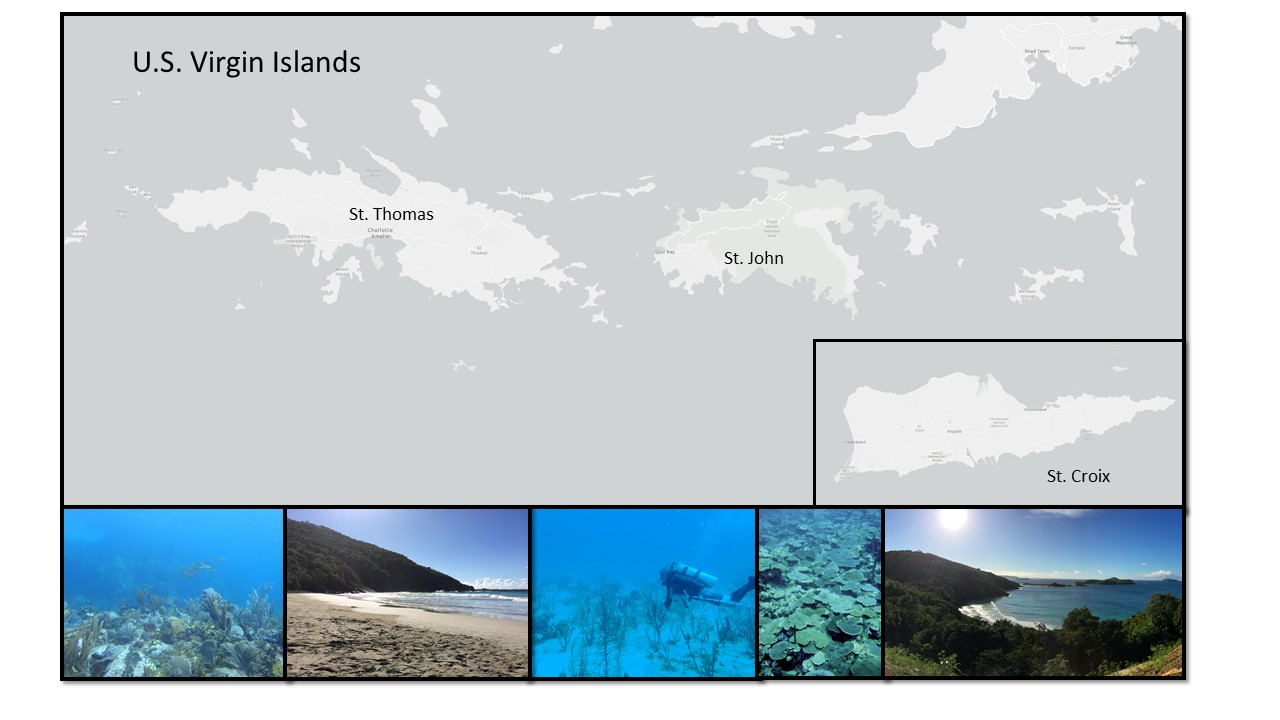We are identifying coral reefs and underwater habitats in the U.S. Virgin Islands that have high resilience properties and potential to withstand current and forecasted climate change conditions, such as thermal stress, increased wave action, and coral disease outbreaks. Project results will supply local resource managers with current, spatially explicit, and easily interpreted data to help them prioritize coral reef sites for risk assessments and conservation actions.
Why We Care
Coastal managers in the U.S. Virgin Islands (USVI) want to identify local coral reefs that may be resilient to long-term climate effects, as well as shorter-term chronic impacts, such as coral disease. Specifically, managers urgently need to know where the best reefs are located, and which reefs are most resilient to climate stressors and coral disease. This information will allow managers to better prioritize, evaluate, and target conservation actions.
What We Are Doing
We are working with NOAA’s Atlantic Oceanographic and Meteorological Laboratory, NOAA’s Coral Reef Conservation Program, and the U.S. Virgin Islands Department of Planning and Natural Resources to assess the relative resilience of USVI coral reefs by:
-
- Compiling climate and coral reef spatial data layers into an online data visualization tool,
- Mapping coral reef exposure to current and forecasted climate stressors,
- Creating maps of localized coral sensitivity to climate stressors, and
- Applying a spatial index to prioritize potentially resilient reef areas.
These data layers and maps will be added to an existing USVI Digital Atlas (link below), where they can be viewed with a comprehensive collection of environmental data for the territory.
Benefits of Our Work
This study will help identify the underwater marine sites in the USVI that are least vulnerable to climate impacts and will support conservation efforts for local coral reef ecosystems. This work supports NCCOS partners in the U.S. Virgin Islands in their quest to implement resilience-based, adaptive management.

